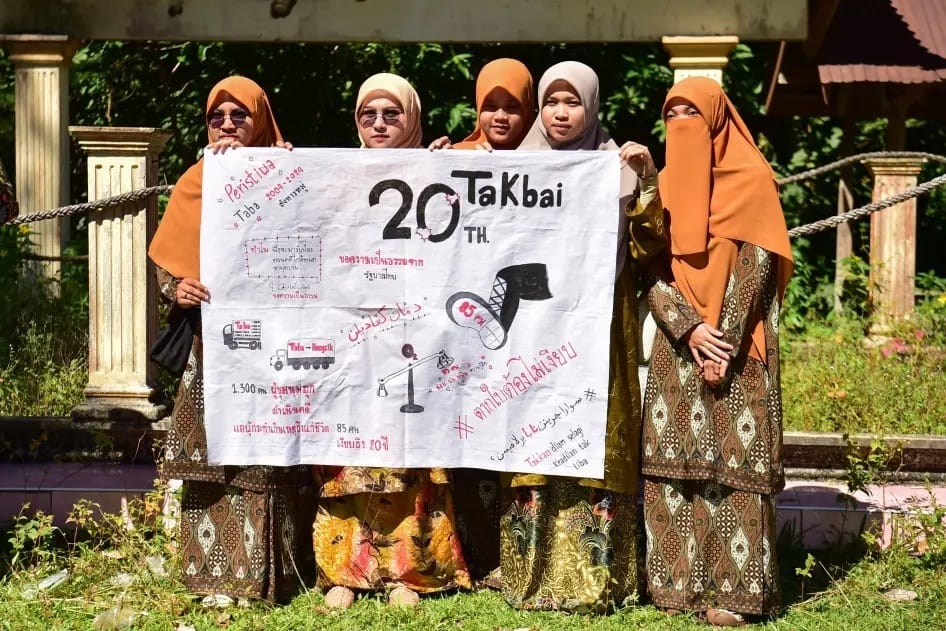20 years of impunity for Tak Bai massacre victims
As Thailand approaches the 20th anniversary of the Tak Bai massacre, victims and their families continue to seek justice for the tragic events that claimed the lives of 85 people and left hundreds injured.

As Thailand approaches the 20th anniversary of the Tak Bai massacre, victims and their families continue to seek justice for the tragic events that claimed the lives of 85 people and left hundreds injured.
Human Rights Watch reported today that successive Thai governments have failed to prosecute former officials implicated in these offenses, with the statute of limitations set to expire on October 25, 2024.

On October 25, 2004, Thai military and police units violently dispersed thousands of ethnic Malay Muslim protesters outside the Tak Bai police station in Narathiwat province. The chaos resulted in the deaths of seven protesters shot during the dispersal and 78 more who suffocated in military trucks while being transported to a detention facility over 150 kilometers away. Survivors endured days of detention without medical care, leading to severe injuries.
“For 20 years, successive Thai governments have failed to prosecute those responsible for the horrific deaths and injuries at Tak Bai,” said Sunai Phasuk, senior Asia researcher at Human Rights Watch. “Yet the victims of this violent crackdown and their families have never given up on their quest for justice.”
Despite a fact-finding committee’s 2004 conclusion that the dispersal methods were inappropriate and did not meet international standards, accountability has remained elusive. Following the 2006 military coup, then-Prime Minister Gen. Surayud Chulanont publicly apologized and promised to hold those responsible accountable, but justice has not materialized.
In recent months, there has been a renewed push for accountability. On April 25, 2024, victims and families filed criminal lawsuits with the Narathiwat provincial court, resulting in indictments for seven former senior officials, including prominent military and police leaders. However, all defendants have since fled, leaving their current whereabouts unknown.
The conflict between separatist insurgents and the Thai government has led to over 7,000 deaths in southern Thailand since 2004, with security forces often accused of human rights violations against ethnic Malay Muslims. Despite this, the Thai government has frequently offered compensation to victims’ families in exchange for silence regarding security forces’ actions.
Human Rights Watch urges Thailand’s new Prime Minister, Paetongtarn Shinawatra, to honor her pledge to strengthen the rule of law by amending Article 95 of the Criminal Code, which governs the statute of limitations for serious human rights violations.
“The Tak Bai massacre is just one of many cases over the past two decades in which those responsible for grave abuses in southern Thailand have escaped prosecution,” Phasuk emphasized. “Prime Minister Paetongtarn should prevent a recurrence of such injustice by removing the statute of limitations for serious human rights violations.”














